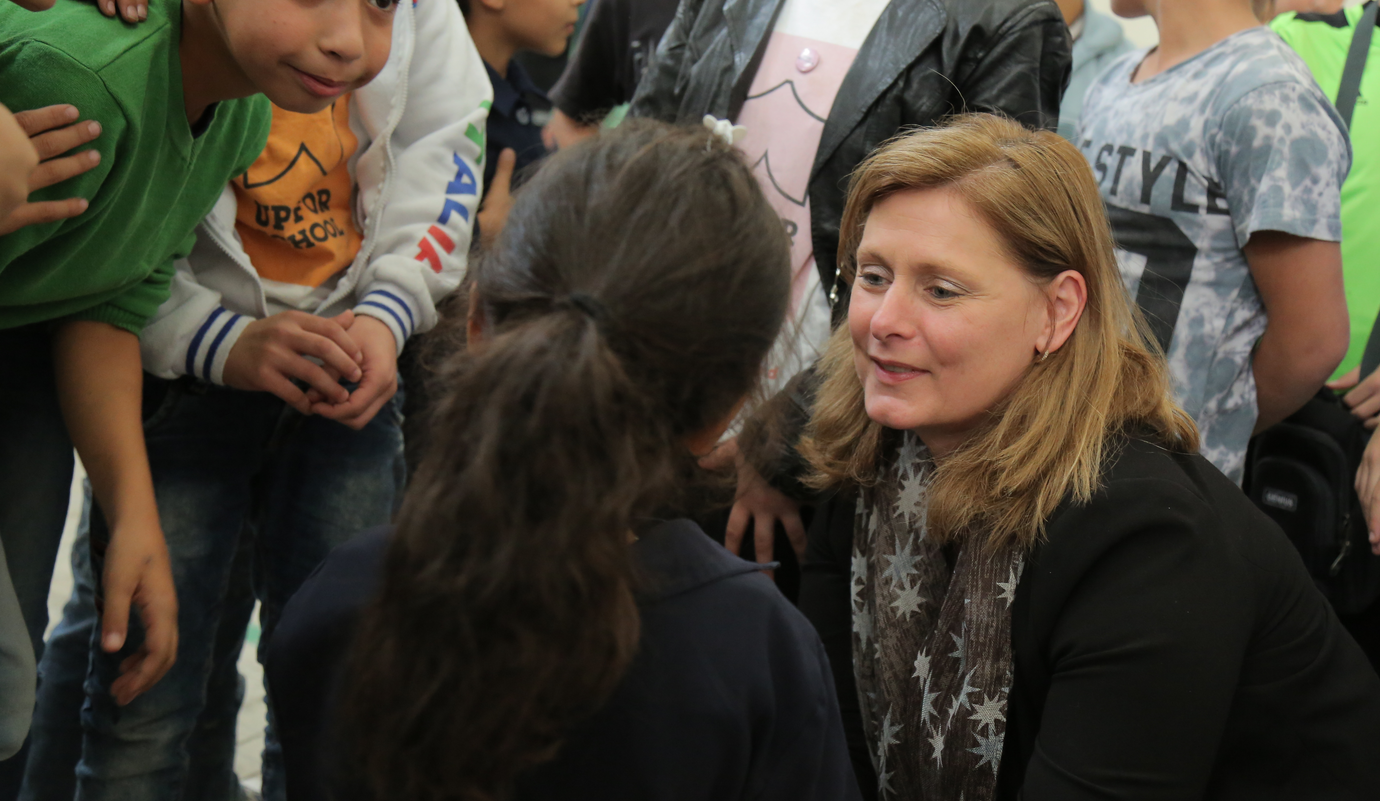
GPE’s $3.5bn mission to help 29million children go to school
Education funding
Julia Gillard is on a mission. To raise $3.5billion and use it to help 29million children get access to quality education in 66 countries.
It’s a daunting task – but she is ready for the challenge and travelling around the world to persuade partners and governments to do their bit for the cause.
Ms Gillard is the former Australian prime minister who is now four months into her job as Chair of the Global Partnership for Education. The multilateral partnership is working to help the world’s 57million children who don’t go to primary schools and millions more shut out of a secondary education.
She and her organisation are working flat out in the run-up to the GPE’s Second Replenishment Pledging Conference on June 26 at the European Union headquarters in Brussels, Belgium. The money raised will be used to provide education access from 2015 to 2018.
As well as the $3.5billion needed from donors to support the annual schools costs of 29milion children, developing country partners are being asked to promise to increase spending on education towards 20% of their domestic budgets.
Ms Gillard says: “We are concerned about funding. We are concerned that of the money that goes into aid and development work around the world, education hasn’t been holding its place and getting its share, although education is what truly transforms the future of individual lives.”
THE GPE has just announced that a distinguished group of global education leaders, education ministers and youth advocates will help it to ensure a successful replenishment conference and a revitalised education agenda for the post-2015 era.
They include United Nations Special Envoy for Global Education Gordon Brown. He said: “Supporting the GPE fund to deliver results for out-of-school children is an essential aim in our quest for increased financing, improved delivery systems and heightened political will to make education a reality for every child.”
Another member of the group is Jacob Kragh, President of LEGO Education. He said: “We support GPE’s dedication towards delivering good quality education to all children so that they can fulfill their potential and contribute to their societies.”
Ms Gillard has just been to London, where she said she is grateful to the United Kingdom – the GPE’s biggest donor nation with $770million contributed so far.
During that visit, she told the Sydney Morning Herald: “I know what it’s like for donor nations to put taxpayers’ precious money into supporting change in some of the poorest countries.
“In the 59 countries we work with, I know what it’s like trying to build an education programme from scratch or trying to get more money into schools.”
In late April, Ms Gillard was in Dubai to focus on partnerships with United Arab Emirates governments and organisations including Dubai Cares.
There she said: “We certainly want to make sure that there is a strong Arab voice around the table as GPE goes about its decision making.”
She told Gulf News: “You would expect me of all people, having been a woman leading a nation in a world where it is still not very common, to say that girl education is vital.
“But is not just an emotional response from me. There is very hard evidence that shows that educating girls is one of the biggest single things that we can do to combat poverty.”
A blog Ms Gillard wrote for the Huffington Post sums up her ethos.
She wrote: “At a time when the world faces many threats and challenges, any failure to invest in education and to address inequalities in education has considerable global costs. Good quality education amplifies and sustains the impact of efforts across all areas of human, economic and social development.
“Education is essential to lifting individuals out of poverty. It is critical to empowering girls as they grow into women. Education is key to ending slavery.”
More news

